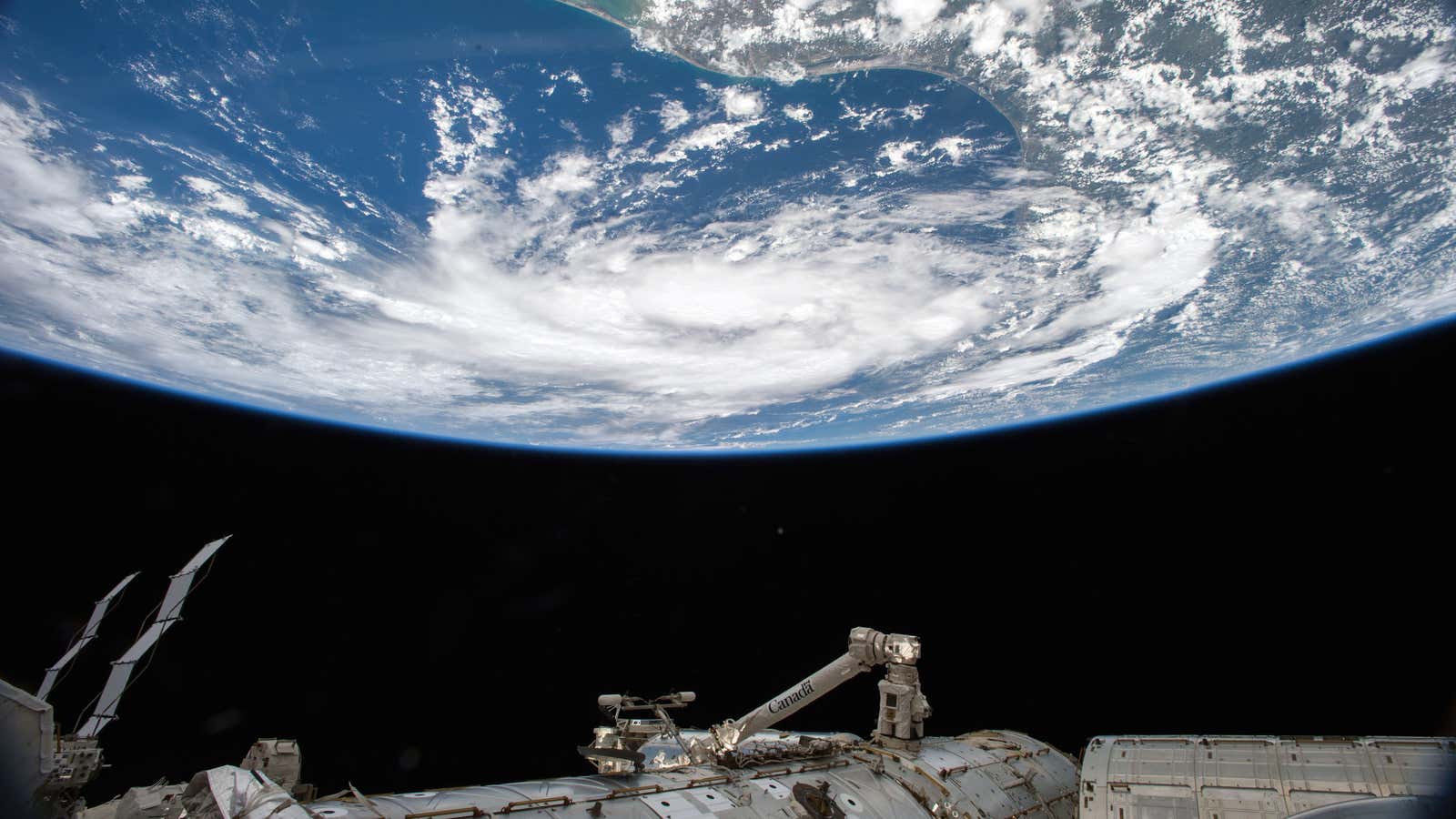Only time will tell whether the Paris Climate Conference, the 21st of its kind, will revitalize the global climate change movement. After years of disappointment, global leaders are gathered in France again this week to debate a number of proposed solutions to a critical problem (including ways to limit global warming to 2 degrees Celsius). What can be predicted with relative certainty, however, is that the term “Mother Nature” will be bandied about politicians, scientists, and pundits over the next few days. Unfortunately, the idea that women and nature are inherently linked is a tacit acceptance of their mutual exploitation.
Even as we have spent decades subjugating the power of Earth, American children have been taught to address the environment as “Mother Nature.” The idea that the Earth is a parental figure because it sustains us is a comforting analogy. But what we do not learn as children, and are often not taught as we age, is the harm caused by gendered and sexist language that reinforce gender stereotypes and hierarchies.
While many ancient and continuing traditions revere female spiritual incarnations of the Earth, such as the Greek deity Gaia, or the Incan goddess Pachamama, most of the references we now hear about ”Mother Nature” have little spiritual context. Because this language has been separated from accompanying traditions and belief systems, deeply meaningful terms have been co-opted by an ideology that actually values neither women nor nature.
For decades now, feminist and eco-feminist thinkers have discussed the reasons for, and negative implications of, the feminization of nature. As Sherry Ortner states in her 1974 article “Is Female to Male as Nature is to Culture,” when women are seen as “closer” to nature, it also makes them easier to subordinate, just as nature itself is everywhere devalued and subordinated.
As Carolyn Merchant writes in her book “The Death of Nature,” in the aftermath of the scientific revolution, the environment became something to be exploited, transformed, and used for profit. This shift in attitude took place in a patriarchal context, while women’s labor and reproductive abilities had for thousands of years been exploited and freely accessed.
Looking for justification as humanity began asserting its dominance over the Earth in earnest, Western patriarchal societies saw an immediate connection between nature and the qualities which they had come to expect of women. This devaluation of both women and the environment was reified in language, leading to terms like “virgin Earth,” “fertile land,” and “barren soil,” which we continue to use today.
When we conflate the productive and reproductive qualities of women and the environment, we at once glorify and demonize them. The Madonna/whore complex has been discussed often enough with regards to the patriarchal treatment of women, but what often goes undiscussed is this same binary conception of the planet we live on. Earth is either our savior or destroyer.
Just has humans cannot rationalize or argue with nature, neither have men historically seen fit to educate or even argue very much with women, whose character has over the centuries been characterized as “emotional” and “uncontrollable,” too mercurial for logic and reason. No doubt this language sounds familiar, as we hear it often used during coverage of extreme weather events.
The term “Mother Nature,” then, although it arose from spiritually rich traditions, has come to represent the twinned exploitation of all that patriarchal society considers to be inferior to men. As such, both are expected to be perpetually available to them, and to be accepting and accommodating of their desires. As long as the reason for gendered oppression is rooted in women’s apparent closeness to nature, this kind of rhetoric provides another reason to view both women and the Earth as existing on an unequal plane with men.
This is not to argue that women should break whatever personal connection they may feel with the Earth. But rather, that we should fight for the separate consideration of women and nature, and work to empower them both. Because the truth is that both women and the environment suffer under this conflation. Retiring such terminology is an important step on the long path towards deconstructing our gendered conceptions of the Earth.
Sexist language continues to pervade our everyday conversations, often unconsciously. Awareness of the problem is the first, vital step. Although adjusting language patterns may seem insignificant, like so many small acts of resistance, it can lead to profound change.




